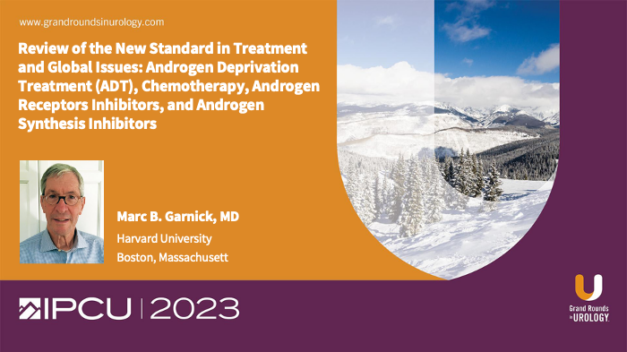How Well Do You Know Doublets and Triplets? – A Pop Quiz
Marc B. Garnick, MD, tests knowledge on doublet and triplet therapies in prostate cancer. In this quiz-themed 13-minute presentation, he poses a series of questions. After each, he discusses the correct response.
Dr. Garnick begins by matching prostate cancer stages—such as non-metastatic castration-resistant, metastatic castration-sensitive, first-line castration-resistant, and castration-resistant post-docetaxel—with corresponding clinical trials. He incorporates key studies, including SPARTAN, PROSPER, ARAMIS, TITAN, and PREVAIL, and therapies like apalutamide, enzalutamide, daralutamide, and abiraterone in his questions. He also quizzes his audience on side effects and NCCN Guidelines for treating metastatic disease.
The presentation provides a unique comprehensive examination of the landscape of doublet and triplet therapies in prostate cancer, emphasizing the critical importance of personalized treatment approaches based on a detailed understanding of clinical trial data and drug-specific side effect profiles.
Read More



